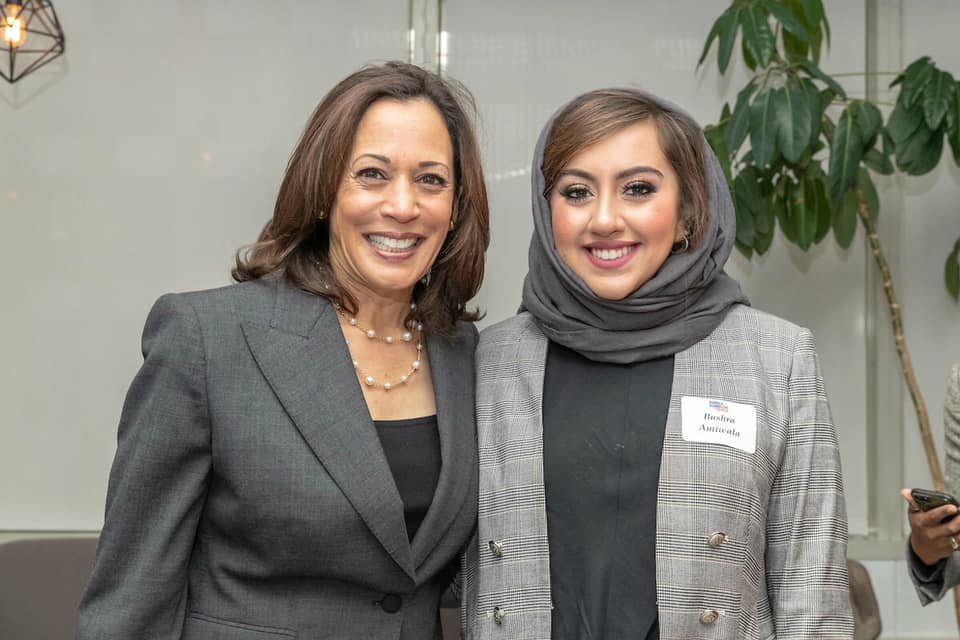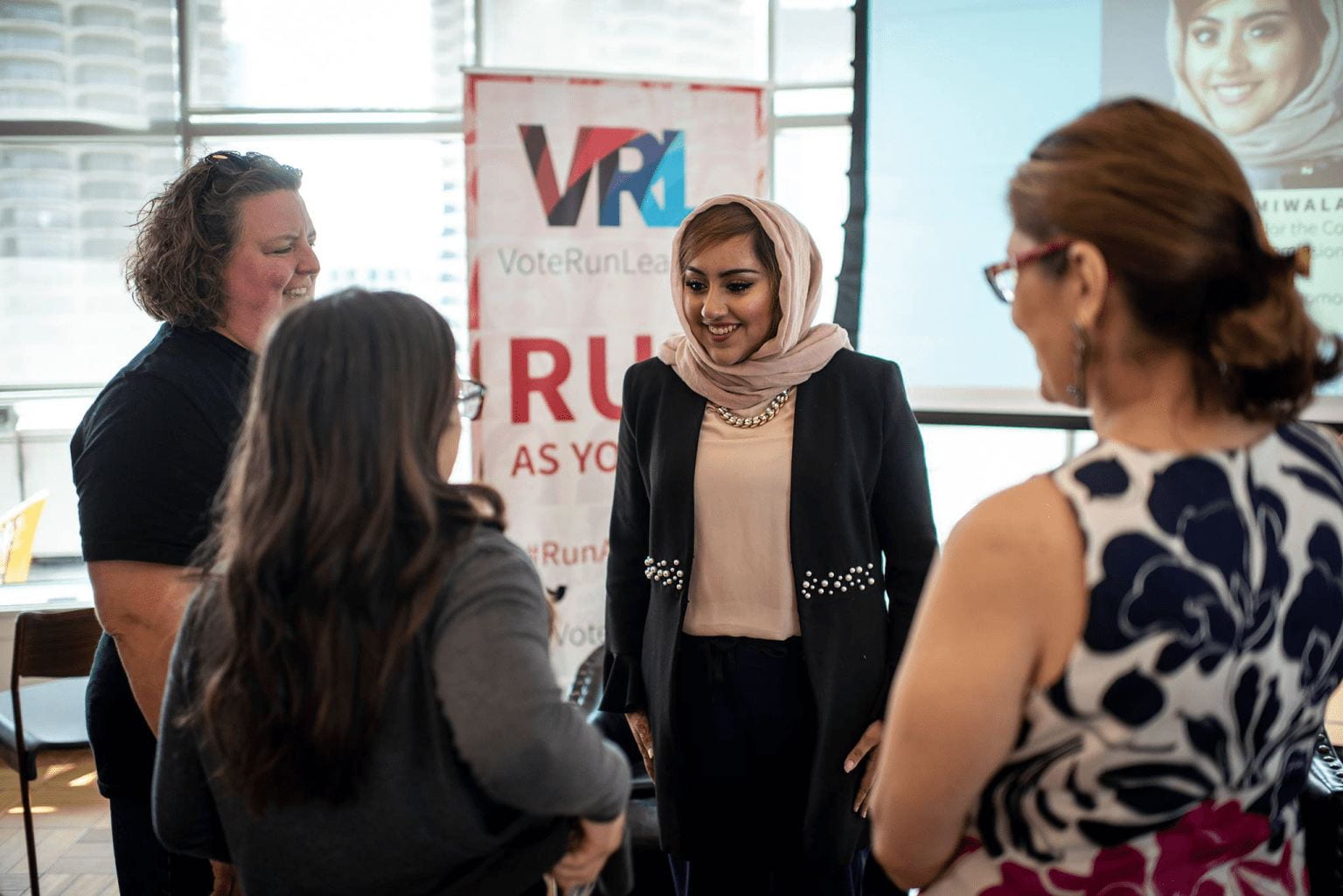
Alumna Bushra Amiwala, seen above with Vice President-elect Kamala Harris, is part of a wave of women making their voices heard in politics.
I think a lot of us just didn’t think that this kind of change would be possible for someone who had a particular background.”
— Bushra Amiwala (BUS ’20)
Two years ago, Bushra Amiwala’s (BUS ’20) candidacy for the Cook County Board of Commissioners captured the attention of national media outlets and won her a place in the PBS docuseries “And She Could Be Next.” In one scene, the documentary shows Amiwala addressing a room full of young volunteers in a small Skokie, Ill., restaurant.
“If I get elected,” she says. “I would be the first Pakistani Muslim woman to ever hold office in the United States.” At 20 years old, Amiwala lost her election to longtime incumbent Larry Suffredin. A week after her loss, Suffredin invited Amiwala to breakfast and encouraged her to run for the Skokie Board of Education.
“He said, ‘You can’t let this movement and mobilization that you had go to waste. You have to keep going,’” she says. She took his advice, and in 2019, Amiwala was elected to the board and is currently serving a four-year term. “Skokie has had such a profound impact on me and my education and upbringing, and it was my way to give back to the community that has done so much to shape who I am,” she says. Amiwala’s win made her the youngest Muslim elected official in the country.
Since 2015, the number of women of color who have run for office and been elected has increased dramatically—up 40% in Congress and up 38% in state legislatures, according to a report released by the Women Donors Network. In August, U.S. Senator Kamala Harris was nominated as the Democratic vice-presidential candidate. She was elected as the first woman and the first Black and Asian American vice president of the United States.
“I think a lot of us just didn’t think that this kind of change would be possible for someone who had a particular background. Now they are stepping up to the plate and realizing, yes, there is space for us in the political realm if we choose to get up and do something about it,” says Amiwala, who began working for Google as a large customer sales associate following graduation in June. “I do want to make sure it’s not just a token type thing, that it’s not just the identity politics behind it, that they truly are the best to represent their communities right now in this time.”
During Amiwala’s first election run, which placed her and other women candidates on the cover of Time magazine, she noticed a trend in news stories documenting her campaign. During interviews, journalists rarely asked about her ideas as a candidate and instead focused on her identity as a Pakistani Muslim woman.
Amiwala says she has combated the stigma attached to identity politics by reclaiming her own voice when she can. “It’s being very intentional about what I choose to put out there and how I choose to amplify my own voice,” she says. “It’s speaking out against every instance where I do sort of feel like my identity and what I look like is at the forefront instead of my actual policy ideas or change I hope to bring forth.”
By Jaclyn Lansbery | Photos courtesy of Bushra Amiwala

